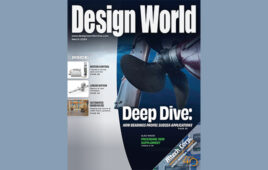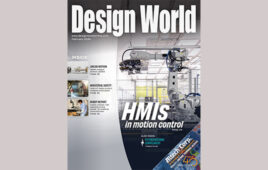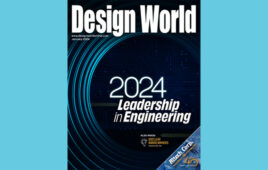How will AI affect engineers?
Richard Pak is an associate professor in Clemson’s psychology department and director of the Clemson University Human Factors Institute. We spoke recently about how he sees the relationships between humans and machines advancing over the next five years.
Pak said that the relationship will grow much closer simply because more people will be exposed to autonomous systems, whether that be in their car, at work, or at the doctor’s office. In addition, because of rapid advances in their capabilities, it may become harder to distinguish some types of machines as a machine — imagine talking to AI on the phone or in your car that is so capable it can fool you into thinking it was a human.
But for mechanical and electrical design engineers, there will be changes, too. “On the short time scale, AI will free designers and engineers from repetitive or low-level tasks,” Pak said. “Automation already does this for many physical or manual tasks. But AI will have a similar effect for cognitive tasks (like design and engineering). So, for example, instead of a designer having to come up with optimal designs for a problem, AI might be able to generate an initial set, based on existing designs, allowing the designer to focus their efforts on more demanding tasks. But as advanced AI seems to be, it is still very narrowly capable and will not completely replace knowledge work.”
From an industry standpoint, Pak said that industries heavily dependent on data are the most likely to be affected.
“Just as automation revolutionized manual work, AI will alter occupations that we once thought to be non-auto able. Occupations where massive amounts of data must be examined, and patterns found are good candidates for rapid change: finance and medicine come to mind. Regarding medicine, AI is already being trained to detect diseases before symptoms appear only by using basic information (e.g., medical scans, gait changes). Subtle changes that are difficult for human doctors to detect but readily recognizable by trained AI.”
So, what does that mean for our kids with good technical aptitude — should we still be encouraging them to study a field like engineering today?
“I do not think future students need to be experts in machine learning, but such knowledge is useful as ML is being applied and used in the most unlikely of places (e.g., in your phone),” he said. “The fundamentals of engineering education should not be too affected … but if job safety is of concern, one area where AI will have the most difficulty is generating novel, creative solutions to complex problems. In those situations, AI will always be an aid but human creativity and ability to make disparate connections will always be more valuable.”
Pak said that the coming of highly autonomous systems (backed by advanced AI) is inevitable. Advancements are moving so fast, whole industries will be affected very quickly. As a result, we have to be equally urgent about understanding the political, moral, society implications. And we have to understand how human behavior will change when these systems become widespread.
Paul J Heney
VP, Editorial Director
[email protected]
Filed Under: DIGITAL ISSUES • DESIGN WORLD




